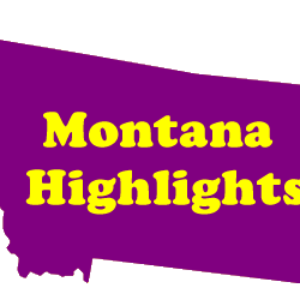According to a new University of Montana study the TV series “Yellowstone,” has brought in an estimated 2.1 million visitors and $730 million in spending to Montana in 2021. The show was also responsible for 10,200-plus jobs across a wide spectrum of industries, including tourism-related sectors.
Missoula’s Denny’s, at 2922 Brooks Street across from Southgate Mall, is “permanently closed,” according to a handwritten sign posted on the door.
In response to a bounty hunt that turned fatal in Butte, Troy Downing, Montana’s auditor and commissioner of Securities and Insurance, wants lawmakers to rein in rogue bail bond agents and “Wild West” tactics sometimes used to nab fugitives. The bill that would require bail recovery agents to be trained and licensed and notify police of planned apprehensions.
Matthew Monforton, a former GOP lawmaker is backing changes to Montana’s citizen-led ballot initiative process. Citizen-proposed ballot initiatives must reach a certain threshold of voter signatures before they can appear on the ballot. The 2021 law requires those initiative petitions to first go before a legislative interim committee for review and a vote before they can go out for signature-collecting. The attorney general’s office also gets an opportunity to weigh in, deciding whether they would be bad for business and whether they might be unconstitutional.
A group of Bozeman residents filed a lawsuit to the city about a fraternity that took over a single-family home in their neighborhood. The city will consider a zone text amendment request that would limit where Greek organizations could set up a house. The Community Development Board had on their recent agenda a zone text amendment that was requested by a group of neighbors in the university neighborhood near Montana State University. Many of the residents live near 411 W. Garfield St., which recently became the home of the Alpha Sigma Phi fraternity.
The Bozeman Whole Foods Market that has been anticipated for over two years is finally set to open its doors in February. Located off West Main Street near the Gallatin Valley Mall, will open Feb. 1. The Bozeman location will include an outdoor patio with heaters and a local, coffee bar Treeline Coffee Roasters. The store will employ approximately 130 people.
The Purple Cow restaurant in Hardin was demolished recently. The owners of the property, the Good 2 Go Company, claimed to be exploring opportunities.
The multi-billion-dollar gas-to-liquids (GTL) complex slated to be built in Williams County remains on track, according to a Cerilon GTL ND spokesperson. The Canadian company reportedly was provided $9 million in combined loan assistance from the ND Department of Commerce and Williams County.
San Diego-based Dvele, a California company that makes modular homes plans to build an $80 million, 450,000 square-foot facility at the Montana Connections Business Development Park in Butte. The project could employ up to 150 employees the first year. Officials with the company announced the plans recently. Acco9rding to the officials they chose Butte in large part because of its connecting interstates and its people.
The Montana Department of Transportation will be taking action in Glendive to help alleviate congestion on West Towne Street around the CTAP industrial yard. According to state officials there will soon be significantly more signage in that area, giving local officials more enforcement power to keep the roads clear.
Les Kleinman has opened Brooklyn Bagels on Nucleus Avenue in Columbia Falls in the new Ruis building. Kleinman also owns a Brooklyn Bagels in Missoula and owns several Firehouse Sub franchises across Western Montana and Idaho. The bagels are imported from New York from Ess-a-Bagel, where are they already boiled and par-baked.
TDS Telecommunications LLC (TDS) will be delivering its all-fiber network to Helena, Butte, Missoula, Lolo, and Great Falls, Montana this year. In these communities, TDS has commenced final build preparations and will break ground on its fiber network in 2023. TDS will eventually connect more than 100,000 homes and businesses. When construction is completed, TDS will deliver symmetrical internet speeds up to 8Gig, TDS’ all-digital TV service, TDS TV®+, and a variety of phone options for residential and business customers.
Governor Greg Gianforte directed Montana Fish, Wildlife & Parks (FWP) to develop a new wolf management plan for the state.
The Made in Montana Tradeshow for food and gifts will be held March 10-11, in Helena. The Tradeshow is a unique selling opportunity for Made in Montana companies as it incorporates a “Wholesale” day and a public “Retail” day.
“Given the public and legislature’s engagement in wolf management, it is an appropriate time to revisit the Wolf Plan,” said Gov. Greg Gianforte in a letter to FWP Director Hank Worsech, as he provided direction to form a new Wolf Plan. The state’s current Wolf Conservation and Management Plan was finalized and approved by the United States Fish and Wildlife Service in 2004. Congress delisted wolves in 2011, and since that time, Montana has retained statewide management authority.
Move Buddha shows people moving to Idaho from other states are starting to lose momentum. The site tracks data from companies that rent moving trucks. Arrivals have been running at more than three to one of the departures, but the site now claims the difference is no more than a couple of dozen newcomers for every 100 people leaving. Per capita, Coeur d’Alene is the most popular destination for incoming moves. Californians remain the greatest imports. • 1 in 3 moves in are coming from California in 2022, according to move Buddha’s data. #1 Coeur d’Alene is the city in Idaho seeing the most inflow in 2022, to date. Data shows there are over 223 moves in for every 100 moves out. Other popular cities to move to include #2 Eagle (176 to 100), #3 Twin Falls (136 to 100), #4 Lewiston (132 to 100) and #5 Boise (124 to 100). • One solitary city has seen massive exits in 2022: Rexburg, ID.
Whole Foods Market announced they are opening its new store location in Bozeman Feb. 1, the first Whole Foods in Montana. The Bozeman location will include an outdoor patio with heaters and a local, coffee bar Treeline Coffee Roasters.
Great Falls has one of the highest crime rates compared to other communities of comparable size in the nation. A report says that the chance of becoming a victim to either violent or property crime is 1 in 20. According to the Great Falls Police Department (GFPD), over the last 8 years, some crime has been rising; specifically crimes against persons and aggravated assaults.
Two former mayors of Bozeman were recently quoted: “If we woke up tomorrow to 1,000 brand-new housing units, they would be snatched up by the same people who are snatching them up today: 20 percent would go to wealthy people from Bozeman who can afford to move up or invest; fifty percent would go to wealthy newcomers; and the remaining thirty percent would go to out-of-state investors.”
North Dakota’s commercial service airports finished calendar year 2022 with a statewide total of 1,028,159 airline passenger boardings. This is a growth of 141,350 passengers and a 16% overall increase from calendar year 2021. In 2022, the airports also tallied 1,023,816 passenger deplanements for a grand total of 2,051,975 passengers.
In North Dakota, Williams County approved a loan of $10 million to Cerilon GTL ND to construct a 24,000 barrel per day Gas-to-Liquids (GTL) plant with carbon capture and sequestration. The plant will have the lowest carbon footprint of any GTL plant in the world. It will convert natural gas into high value and low emission synthetic energy products, including ultra-low sulfur diesel, naphtha, and lubricant base oils. It creates a platform for the production of other valuable products such as ammonia and fertilizer. Cerilon GTL ND’s parent company is based in Alberta, Canada. The project will bring 1,000 construction jobs and 95 permanent jobs.
Every year, nearly 2 million school-age children and young adults are injured playing sports. However, sports are getting safer, reports Quote Wizard News. Analysts found that sports-related injuries have declined 31% since 2017. Football is the most dangerous sport for children under 15. Basketball, skateboarding, and football are the most dangerous sports overall. Skateboarding is the only sport where injuries have increased, going up more than 100%.
Montana Governor Gianforte has named Chris Gallus to be the next commissioner of political practices, replacing Jeff Mangan.
While still a sellers market the real estate market in Gallatin County is nearing more typical numbers, reports the Gallatin Realtors Association. Compared to December 2021, median sales prices increased 8.5%, from $725,000 to $786,951. Closed sales fell 38.5%, from 117 to 72. The median number of days homes spent on the market jumped 366.7%, from 12 to 56. The average percent of list price received by sellers fell slightly by 1.1%, from 99% to 97.9%. The median price per square foot sold increased 10.3%, from $331 to $365. Pending sales decreased 28.4%, from 74 to 53. New listings dropped 47.5% from 59 to 31. End of month inventory increased 147.1%, from 102 to 252. The month’s supply of inventory, which is an estimate of the time it would take to sell off the existing inventory, jumped 301.4%, from 0.9 to 3.5 months.
A California company that makes modular homes plans to build an $80 million, 450,000 square-foot facility at the Montana Connections Business Development Park in Butte that could employ up to 150 employees the first year.




